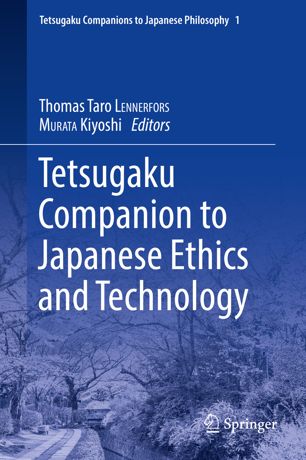

Most ebook files are in PDF format, so you can easily read them using various software such as Foxit Reader or directly on the Google Chrome browser.
Some ebook files are released by publishers in other formats such as .awz, .mobi, .epub, .fb2, etc. You may need to install specific software to read these formats on mobile/PC, such as Calibre.
Please read the tutorial at this link: https://ebookbell.com/faq
We offer FREE conversion to the popular formats you request; however, this may take some time. Therefore, right after payment, please email us, and we will try to provide the service as quickly as possible.
For some exceptional file formats or broken links (if any), please refrain from opening any disputes. Instead, email us first, and we will try to assist within a maximum of 6 hours.
EbookBell Team

4.0
26 reviewsThis book explores the relevance of Japanese ethics for the field of ethics of technology. It covers the theories of Japanese ethicists such as Nishida Kitarō, Watsuji Tetsurō, Imamichi Tomonobu, Yuasa Yasuo, as well as more contemporary ethicists, and explores their relevance for the analysis of energy technologies, ICT, robots, and geoengineering. It features contributions from Japanese scholars, and international scholars who have applied Japanese ethics to problems in the global condition.
Technological development is considered to cause new ethical issues, such as genetically modified organisms fostering monocultures, nanotechnologies causing issues of privacy, as well as health and environmental issues, robotics raising issues about the meaning of humanity, and the risks of nuclear power, as witnessed in the Fukushima disaster. At the same time, technology embodies a hope for mankind, such as ICT improving relationships between human beings and nature, and smart systems assisting humans in leading a more ethical and environmentally friendly life. This book explores these ethical issues and their impact from a Japanese perspective.